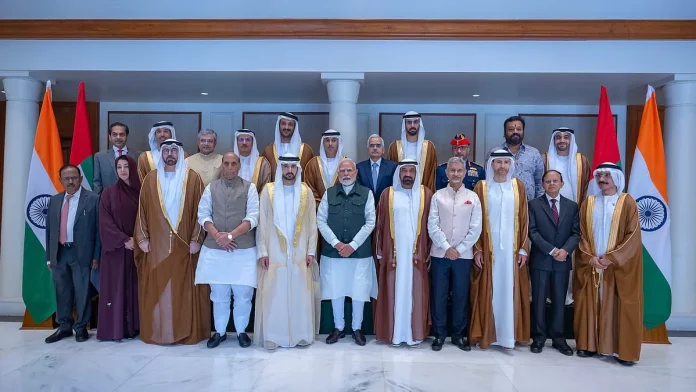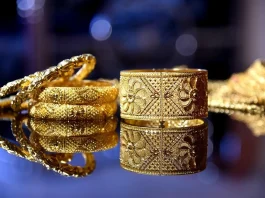A not-for-profit hospital and a virtual UAE-India trade corridor are among the key initiatives announced following Dubai Crown Prince Sheikh Hamdan’s first official visit to India.
The UAE-India Friendship Hospital (UIFH), which will aim to provide inclusive and accessible healthcare to local residents, will be established collectively by Dubai Health and a group of five Indian entrepreneurs, who will act as the founding trustees of the hospital. An agreement was signed by these businessmen and Dr. Amer Sharif, CEO of Dubai Health at a special event organised by Dubai Chambers in Mumbai.
On Tuesday, Sheikh Hamdan arrived in India at the invitation of Indian Prime Minister Narendra Modi for a two-day visit that saw the bonds between both countries strengthen. Several important agreements were inked to improve collaboration across key sectors including infrastructure, healthcare, higher education, maritime services, logistics, and private sector engagement.
The founding trustees of the UIFH include Faizal Kottikollon, Chairman of KEF Holdings, Nilesh Ved, Chairman of Apparel Group, Siddharth Balachandran, Executive Chairman of Buimerc Corporation, Tariq Chauhan, Vice Chairman of EFS Facilities and Ramesh S Ramakrishnan, Chairman of Transworld Group. Four out of the five entrepreneurs are members of the UAE India Business Council – UAE Chapter (UIBC-UC).
Siddharth Balachandran described Sheikh Hamdan’s visit as an important turning point for the relationsh between both countries. “This is truly a monumental visit in terms of strategic impact for both the nations,” he told Khaleej Times. “The announcement of extremely relevant collaborative projects in the fields of healthcare, education and holistic philanthropy is truly the icing on the cake. I am particularly enthused about the UIFH which will specifically cater to the blue collar worker community and also am happy that I am one of the founding trustee of this noble project.”
He explained that the “real work” will begin now. “This is something that has been a dream for many of us,” he said. “Five of us are the founding members but I am sure more entrepreneurs will join in. The real work will start now. We have a long way to go to make this project a reality.
A source close to the project said that the hospital will be located in Jebel Ali.
Faizal Kottikollon extended his heartfelt gratitude to His Highness Sheikh Hamdan, Dubai Health Authority, and Dr Amer Ahmed Sharif and other dedicated partners who made this initiative possible.
“The signing of this MoU highlights the deep-rooted relationship between the UAE and India, emphasising the strong people-to-people connection and community support that has flourished over the years,” he said. “This moment represents more than the launch of a healthcare initiative — it marks the beginning of a transformative journey that will provide essential services to those who have been integral to Dubai’s remarkable development. The signing of this MoU today is a significant milestone, ensuring that this hospital will stand as a symbol of care, compassion, and unwavering dedication to the blue-collar workforce,” said Kottikollon.
He also expressed his sincere thanks to the Indian Embassy and Consulate in the UAE, and the UIBC-UC team for ensuring this project is executed in a steady and efficient manner.
Game changer
Nilesh Ved, who has lived in Dubai all his life, said that the hospital will be a “game changer” in many ways. “In the past, we have seen how the Iranian Hospital has impacted healthcare of Dubai residents,” he said. “For many years, it was offering free healthcare. Similarly, we are hoping that the UIFH will be game changer for workers in the Jebel Ali area.”
He added that there were several philanthropical areas in which India-Dubai cooperation could go further, including education and healthcare. “I think the UIFH is the need of the hour,” he said. “The Indian population has multiplied in UAE by probably tenfold in the last 20 years. In terms of education, the Indian High School in Dubai has been giving world class education at very economical prices for several years now. There is the opportunity to expand this into university education as well.”



